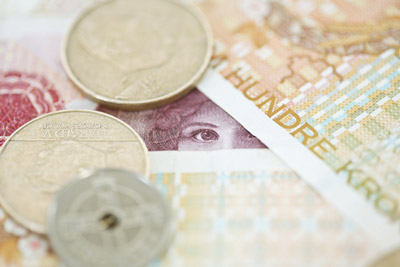Norway’s aviation tax is ill-advised says ACI Europe
- Like
- Digg
- Del
- Tumblr
- VKontakte
- Buffer
- Love This
- Odnoklassniki
- Meneame
- Blogger
- Amazon
- Yahoo Mail
- Gmail
- AOL
- Newsvine
- HackerNews
- Evernote
- MySpace
- Mail.ru
- Viadeo
- Line
- Comments
- Yummly
- SMS
- Viber
- Telegram
- Subscribe
- Skype
- Facebook Messenger
- Kakao
- LiveJournal
- Yammer
- Edgar
- Fintel
- Mix
- Instapaper
- Copy Link
Posted: 2 June 2016 | Katie Sadler, Digital Content Producer, International Airport Review | No comments yet
ACI Europe has reacted strongly to the Norwegian government’s aviation tax on air passengers which comes in to effect on 01 June 2016 for all departing passengers.


ACI Europe has reacted strongly to the Norwegian government’s aviation tax on air passengers which comes in to effect on 01 June 2016 for all departing passengers.


A new aviation tax on air passengers, costing NOK80 (€8.59), will be introduced on each departing passenger for both domestic and international flights from Norway.
Aviation tax to be introduced on departing passengers for domestic and international flights
In a statement reacting to the Norwegian government’s decision to implement the duty, ACI Europe said that the tax was ill-advised, damaging and counterproductive and is a worry development. It believes it is ‘short-sighted, as it ignores the economic and wider strategic benefits of air transport – the loss of which will significantly outweigh any short-term gains for the Treasury.’
“Taxing air transport directly hurts economic performance”
The association goes on to highlight the close link between air connectivity and GDP growth stating that every 10 percent increase in air connectivity yields an additional 0.5 percent in GDP per capita. ‘Other countries such as Ireland, Belgium and the Netherlands have all toyed with this kind of tax before and eventually repealed it. They did so acknowledging that taxing air transport directly hurts economic performance, and ultimately the State’s ability to collect wider tax revenues,’ said ACI Europe.
“Air connectivity should not be considered as a given. It needs to be nurtured and supported – not taxed and contained”
Olivier Jankovec, Director General ACI EUROPE said: “With the introduction of their new tax today, the Norwegian government is jeopardising future growth and a key source of jobs. It is bewildering to see a country sitting on the periphery of Europe – and even more dependent on air connectivity than others – making such a move.”
He added “The impact will be especially harsh on smaller regional airports and their communities. This new tax is just bad policy-making. Air connectivity should not be considered as a given. It needs to be nurtured and supported – not taxed and contained.”
Ryanair to reduce its Norwegian traffic by 50 percent
Some airlines have already announced they will cut routes to remote regional airports. Ryanair confirmed that (from 29 October 2016) it will be forced to close its Oslo Rygge base and reduce its Norwegian traffic by 50 percent.
Commenting, Ryanair’s Chief Commercial Officer, David O’Brien said: “The illogical decision of the Norwegian Government to introduce a flat rate environmentally unfriendly tax unfairly penalises passengers on efficient, green, airlines such as Ryanair in favour of passengers on high fare, half empty, gas guzzling airlines, and destroys the cost competitiveness of privately owned Oslo Rygge Airport in favour of the state owned Avinor monopoly. As a result, Ryanair has no choice but to close its Oslo Rygge base which will result in our Norwegian traffic being cut in half.”













